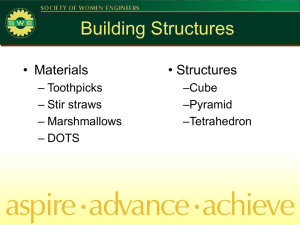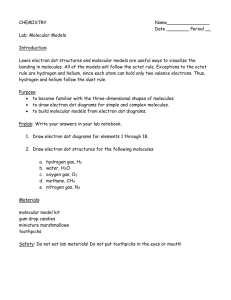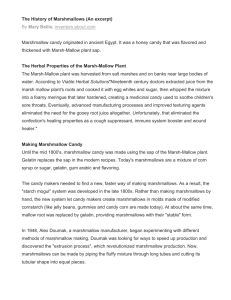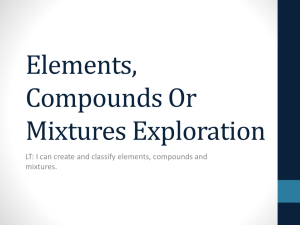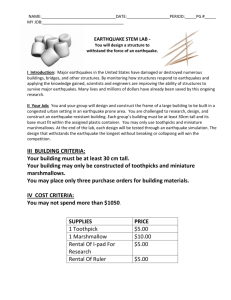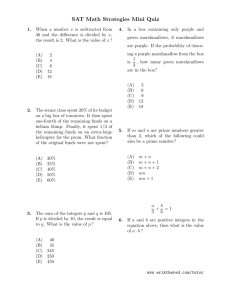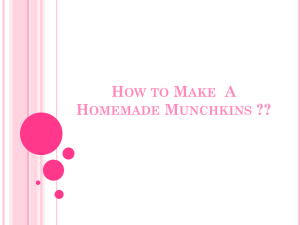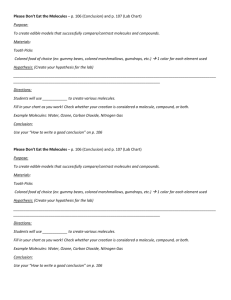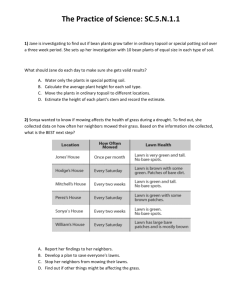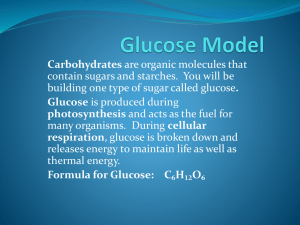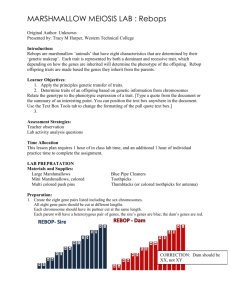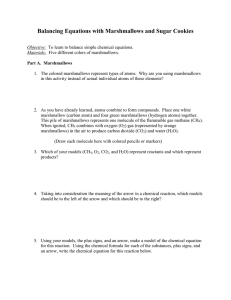Colored Marshmallow Lab
advertisement
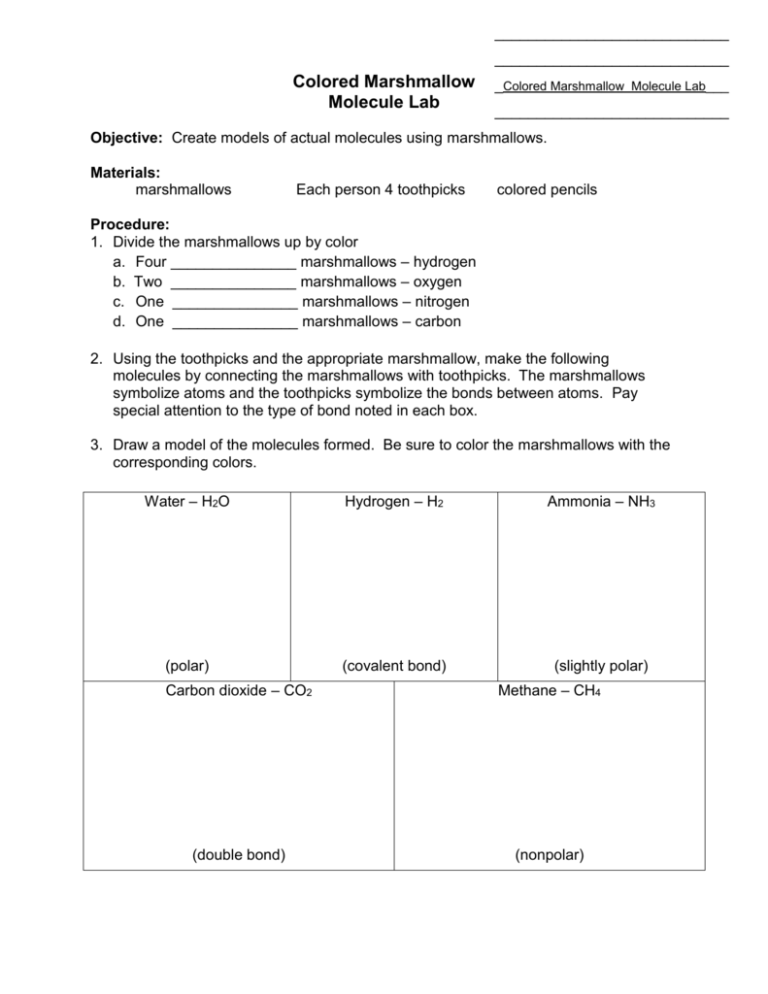
____________________________ ____________________________ Colored Marshmallow Molecule Lab _Colored Marshmallow Molecule Lab___ ____________________________ ___________________________ Objective: Create models of actual molecules using marshmallows. Materials: marshmallows Each person 4 toothpicks colored pencils Procedure: 1. Divide the marshmallows up by color a. Four _______________ marshmallows – hydrogen b. Two _______________ marshmallows – oxygen c. One _______________ marshmallows – nitrogen d. One _______________ marshmallows – carbon 2. Using the toothpicks and the appropriate marshmallow, make the following molecules by connecting the marshmallows with toothpicks. The marshmallows symbolize atoms and the toothpicks symbolize the bonds between atoms. Pay special attention to the type of bond noted in each box. 3. Draw a model of the molecules formed. Be sure to color the marshmallows with the corresponding colors. Water – H2O Hydrogen – H2 Ammonia – NH3 (polar) (covalent bond) (slightly polar) Carbon dioxide – CO2 Methane – CH4 (double bond) (nonpolar) 4. Give an example of how each compound is used or found in nature. Be sure to use complete sentences. Water - _______________________________________________________________ ______________________________________________________________________ ______________________________________________________________________ Hydrogen - ____________________________________________________________ ______________________________________________________________________ ______________________________________________________________________ Ammonia - ____________________________________________________________ ______________________________________________________________________ ______________________________________________________________________ Carbon Dioxide - ________________________________________________________ ______________________________________________________________________ ______________________________________________________________________ Methane - _____________________________________________________________ ______________________________________________________________________ ______________________________________________________________________ Conclusion: Describe how the molecular models you assembled are different from real molecules. ______________________________________________________________________ ______________________________________________________________________ ______________________________________________________________________ ______________________________________________________________________ ______________________________________________________________________ ______________________________________________________________________ Describe how the molecular models you assembled are similar to real molecules. ______________________________________________________________________ ______________________________________________________________________ ______________________________________________________________________ ______________________________________________________________________ ______________________________________________________________________ ______________________________________________________________________ Describe how molecular models might prove to be helpful to scientists. ______________________________________________________________________ ______________________________________________________________________ ______________________________________________________________________ ______________________________________________________________________ ______________________________________________________________________ ______________________________________________________________________
